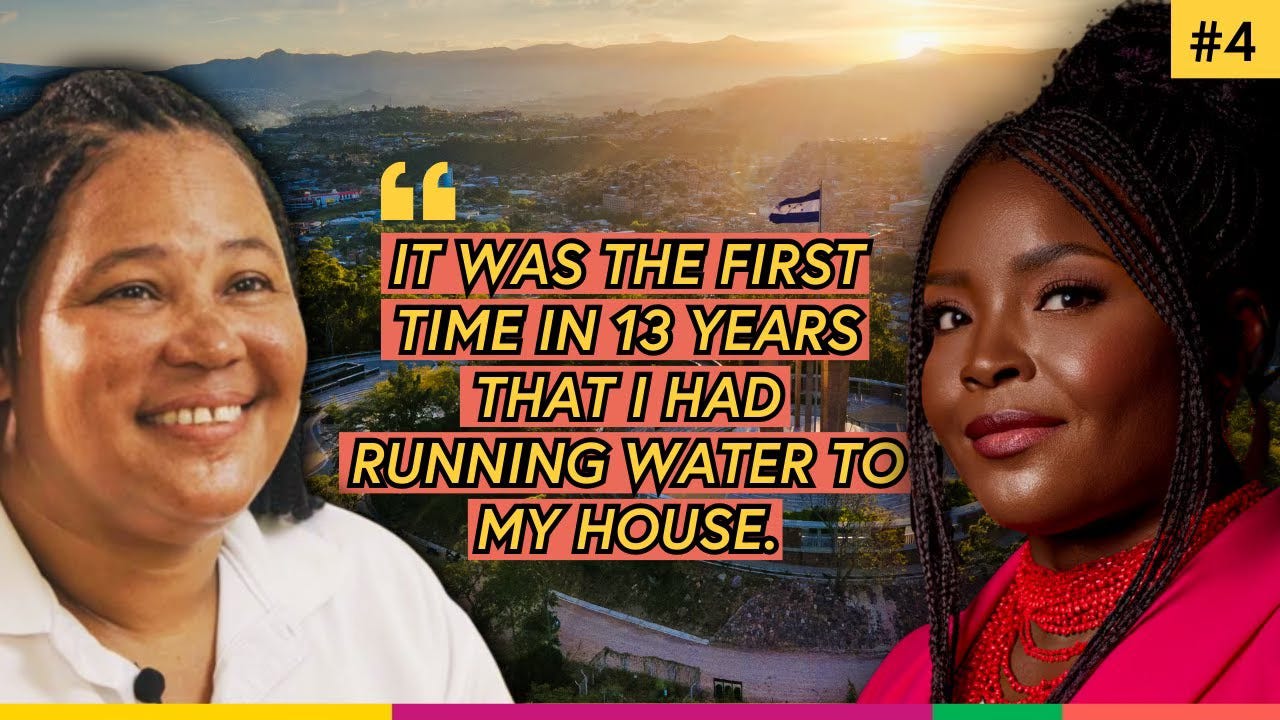The New York Times’ Agenda Exposed
When Attacking The Rich Is More Important Than Helping The Poor...
As an African committed to African prosperity, I joined Próspera several months ago with the intention of bringing the Próspera model to Africa.
I did so after more than a decade of research and experience showing that Africa is poor in large part because it is so difficult to do business there. While I’ve advocated for improved business environments at the national level, a special economic zone strategy is more realistic. It is easier to install a world-class business environment in a zone than to overhaul thousands of laws and regulations, many of which serve existing business interests.
Próspera is the most advanced technology for installing a world-class business environment in a zone. Their model has been working on the island of Roatán, Honduras, for several years now. They have attracted more than $150 million in investment and created more than a thousand jobs, and they are just getting started.
I want this kind of project on my continent!
“China's shift from central planning to a freer economy through SEZs lifted millions out of poverty. African nations don't need to reinvent the wheel. They just need to follow what has always worked. China too, and now India, also had to get the memo.”
- Magatte Wade
The recent article by The New York Times about Próspera unfortunately neglects this aspect of Próspera. While there are some positive features of the article, it also has some misleading claims, some outright mistakes, and way too much gossip and innuendo for my tastes.
This isn’t just about getting the facts wrong.
It’s about the broader implications of such reporting, which can have serious consequences for the people who stand to benefit the most from Próspera’s initiatives.
And who are those people?
The poor.
If Próspera’s efforts to create a world-class business environment are undermined, it won’t be the wealthy or the well-connected who will suffer. It will be the poor people of Honduras who will continue to face limited opportunities, leading them to join “exodus poverty” caravans and turning to coyotes (human smugglers) for the dangerous journey to the United States in search of jobs. They will remain trapped in poverty, unable to access the economic opportunities that could lift them out of their dire circumstances.
It's a matter of life and death.
The crux of the issue lies in understanding the fundamental relationship between poverty and prosperity, and how initiatives like Próspera are designed to bridge that gap. Poverty is not just about a lack of money. It's about a lack of opportunity. And where do opportunities come from? They come from jobs. But jobs don't just materialize out of thin air—they are created by businesses. Therefore, the root cause of poverty is not simply the absence of money, but the absence of viable businesses that can provide steady, sustainable sources of income.
For most people, a job is the primary means of earning a living. It’s what allows families to put food on the table, send their children to school, and aspire to a better future. But when business environments are hostile—when it’s difficult, expensive, or risky to start and operate a business—jobs become scarce. And when jobs are scarce, poverty thrives.
This is why initiatives like Próspera are so crucial.
They don’t just create jobs. They create the conditions that allow jobs to flourish. By streamlining regulations, lowering barriers to entry, and fostering a business-friendly environment, Próspera makes it easier for entrepreneurs to start and grow businesses. And when businesses thrive, they hire workers, who then earn incomes and can improve their standards of living. It’s a virtuous cycle, where entrepreneurship leads to job creation, and job creation leads to prosperity.
In countries where the business environment is stifling—where HEAVY bureaucracy, red tape, and the corruption that it breeds make it nearly impossible to start and run a business—people have few options. They are often forced into low-paying, unstable jobs, if they can find work at all. This lack of opportunity drives many to leave their homes in search of work elsewhere, often risking their lives in the process.
Próspera aims to change this reality.
By creating a zone where businesses can operate freely and fairly, it provides a model for how prosperity can be generated from within. It’s about giving local entrepreneurs the same freedom to enterprise as they do in places like Denmark so they too can build businesses that create jobs and drive economic growth in their beloved nation.
The connection between poverty and prosperity is clear.
Where there are businesses, there are jobs; where there are jobs, there is income; and where there is income, there is a path out of poverty.
Próspera’s model of creating a world-class business environment is not just an economic strategy—it’s a humanitarian one. It’s about giving people the environment and the tools they need to lift themselves out of poverty, to build better lives for themselves and their families, and to create a brighter future for their communities.
Across the world, wherever governments have removed the shackles of heavy-handed regulations and allowed entrepreneurship to flourish, the results have been transformative. China’s Special Economic Zones (SEZs) are perhaps the most dramatic example. In just 30 years, these zones have increased urban wages by more than 10x, benefiting a billion people. They have turned China from a predominantly agrarian society into an industrial powerhouse, fostering rapid growth and innovation.
In contrast, countries that cling to restrictive business environments continue to struggle.
They trap their populations in poverty, not because their people lack talent or ambition, but because the systems they live under make it nearly impossible to start and sustain a business. And without businesses, there are no jobs. Without jobs, there is no income. And without income, there is no way out of poverty.
Contrary to the narrative pushed by The New York Times, most Crawfish Rock residents are in favor of Próspera’s initiatives. This is clearly evidenced in interviews with community leaders like Virginia Mann, who have voiced their support for the opportunities Próspera brings to their community.
The voices of these residents, who stand to gain the most from these economic opportunities, should not be ignored or misrepresented.

Próspera is a lifeline for those who have been denied economic opportunities for far too long. It provides a model for how prosperity can be generated from within, by empowering local entrepreneurs to build businesses that create jobs and drive economic growth.
When media outlets like The New York Times spread misinformation about these efforts, they are not just attacking Próspera… They are attacking the hopes and dreams of the people who stand to benefit the most.
It's easy to criticize from a distance, but the reality on the ground is that Próspera is making a difference—creating opportunities where there were none, fostering an environment where businesses can thrive, and giving the people of Honduras a chance to build a better future for themselves.
That’s the real story.
And it’s a story that deserves to be told truthfully.
If you want to read a detailed breakdown addressing all the inaccuracies and misconceptions in The New York Times article, please visit this link.





This is excellent--well-written and on point. Poverty eradication = Unblocked opportunities. Thank you, Magatte!
Read your book. Glad to see you continuing this good work. Too many “good liberals” think government aid is the answer to the problem of third world poverty, and you demonstrate clearly that the answer has to be economic opportunity for business people who will create jobs to lift people out of poverty.